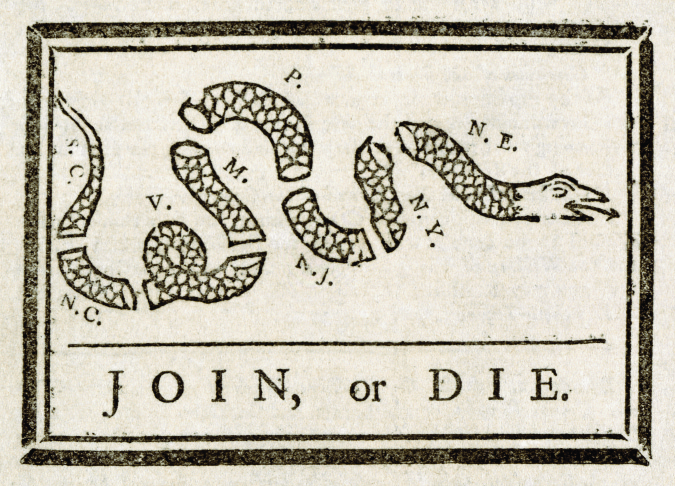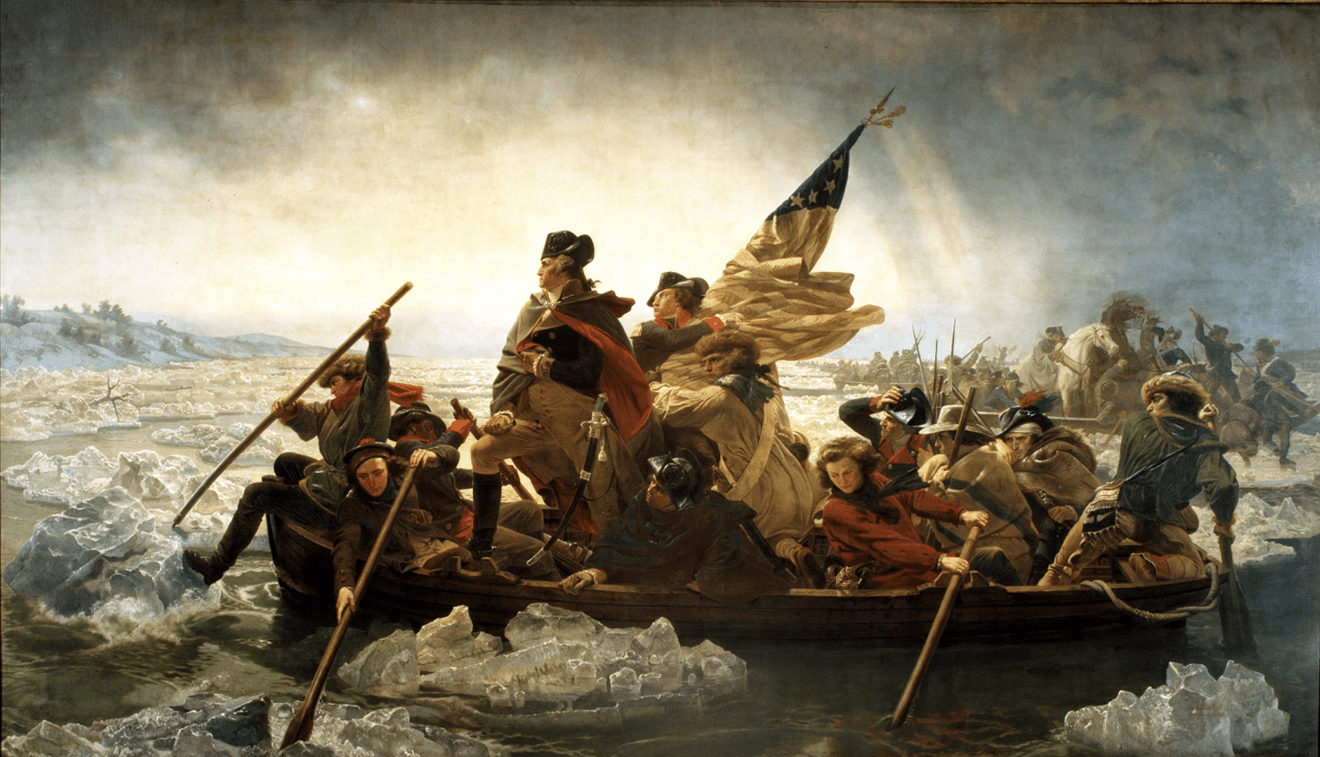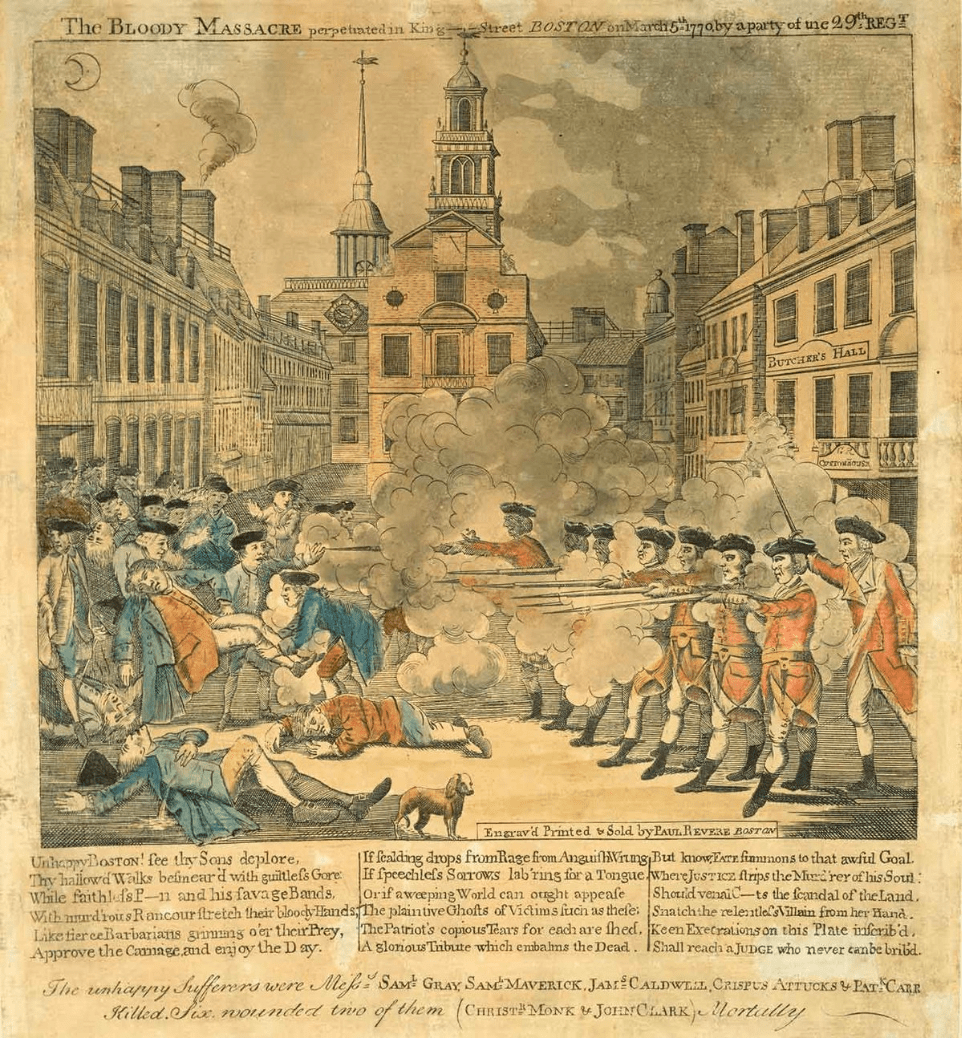Disputes over imperial control of this territory launched the French & Indian War.
Ohio River Valley
This act imposed the first tax on colonists to pay back the crown (1764).
Sugar Act
The following events would violate this Lockean principle:
- Boston Massacre
- Tea Act
- Quartering Act
Natural Rights (Life, Liberty, Property)

This Ben Franklin plan was pitched at the Albany Congress.
Albany Plan of Union

Washington won a moral (and actual) victory for the Patriots when he crossed this river to confront the Hessians at Trenton.
Delaware River
George Washington accidentally (maybe intentionally) launched the war with an attack on this French fort.
Fort Duquesne
This slogan was championed by Patrick Henry following the Stamp Act (1765).
"No Taxation Without Representation"
This Rousseauian notion argues that the government owes a return to the people.
Social Contract
This congress convened in 1765 and asked Parliament to repeal the tax on all paper goods.
Stamp Act Congress
Thoughts of victory were fading when the Continental Army was starving here during the winter of '77-'78.
Valley Forge
William Pitt paid for the French & Indian War with this.
The "Blank Check"
These acts imposed taxes on a wide range of colonial goods, including tea, glass, paper, paint, and lead.
Townshend Acts
Montesquieu prescribed this solution to absolutism, which would see branches of government serve as the limit to each other's power.
Checks & Balances
This convened in Philadelphia in response to the passage of the Intolerable Acts.
First Continental Congress
This Patriot victory served as the tipping point in Benjamin Franklin's negotiations to secure the support of the French.
Battle of Saratoga
This rebellion was launched near Detroit after the Treaty of Paris of 1763.
Pontiac's Rebellion
This served as a sort of permanent warrant to inspect colonial ships in an attempt to curb smuggling in the colonies.
Writ of Assistance
This American deist argued the obvious: that colonists needed to rise up and join the Patriot Cause.
Thomas Paine ("Common Sense")
The Second Continental Congress issued this document in response to the first shots of the war at Lexington & Concord.
The Olive Branch Petition
With the support of the French navy, Washington surrounded Cornwallis in this battle and forced a British surrender.
Battle of Yorktown.
This was Parliament's response to Pontiac's Rebellion.
Proclamation Line of 1763

Propaganda, like this image of the Boston Massacre, was pushed out by this group led by Samuel Adams.
Committee of Correspondence
This American restyled Locke's "Natural Rights" with these, his "Inalienable Rights."
Thomas Jefferson (Life, Liberty, Pursuit of Happiness)
The Second Continental Congress merged colonial militias into this and appointed this leader.
Continental Army - George Washington
This peace treaty resolved the American Revolution.
Paris Peace Treaty, 1783